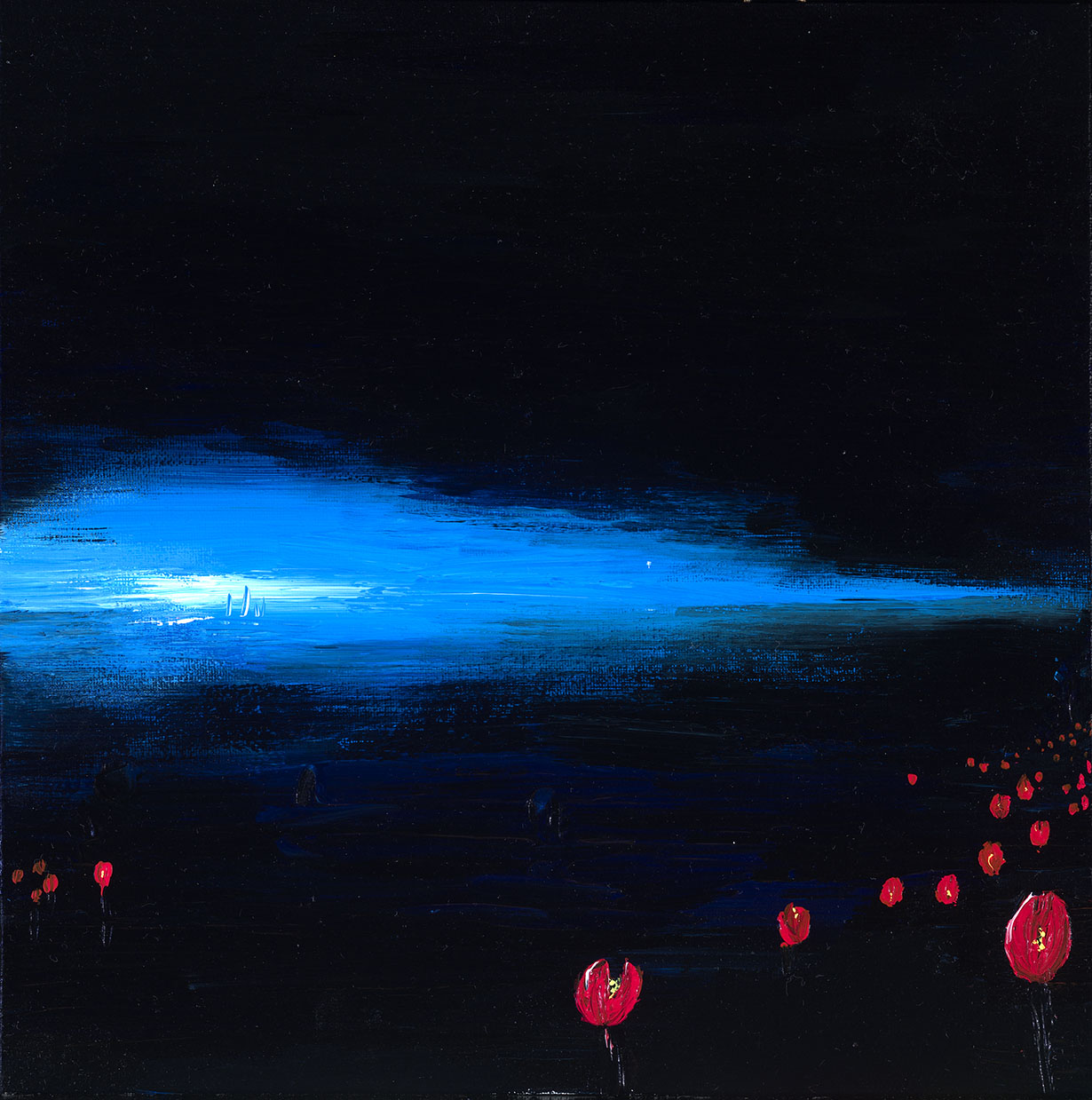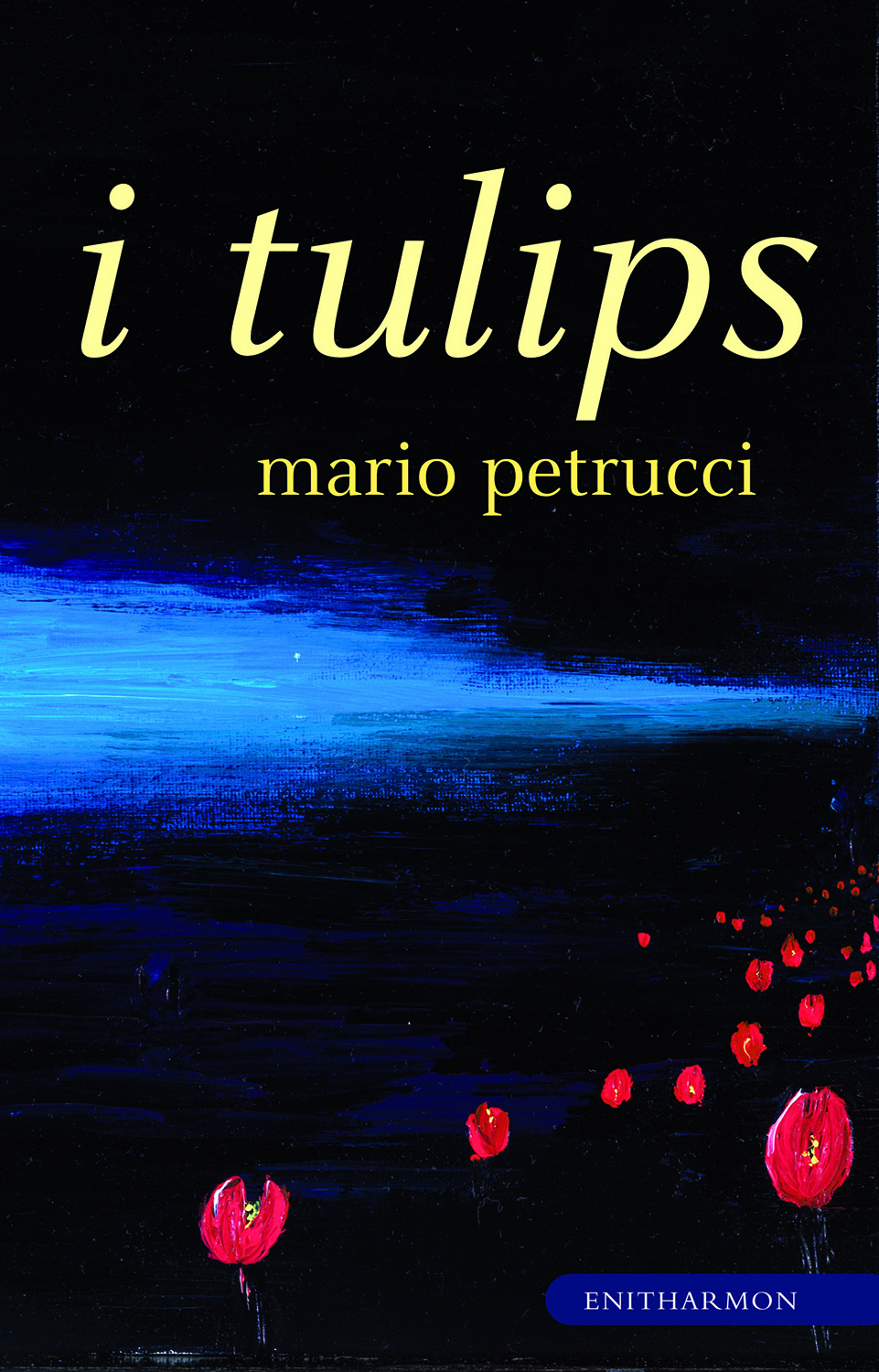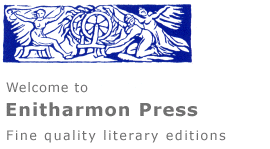|
To order i tulips, contact Enitharmon Press by clicking here:
or contact Mario at mmpetrucci@hotmail.com
rooms – as though
every chamber whose
cannot step
alert & breathe spare
my casing
close who slumber
how would i
shape a world might
a home
walked
Click here... for link to audio of in hay waist-deep was,
recorded at the Poetry Library (Saison Poetry Library / Enitharmon event, 4 Aug 2010) or
here for website copy
i tulips: a poetic flowering...
Click here for the Iota interview
|
"Petrucci’s tulips promise to grow into a truly ambitious landmark body of work." PBS Bulletin
RECIPIENT OF AN ARTS COUNCIL ENGLAND 'GRANTS FOR THE ARTS' AWARD
and featured by BBC Radio 3 .... click here.
Bill Berkson (USA) Roy Fisher
Simon Jenner
Informed as much by Rilke and Stevens as by Black Mountain, i tulips projects a fiercely original lyricism through the most tenderly realized immediacies.
Here, at last, linguistic and formal invention generate a profoundly meditative, contemporary musicality. Mario Petrucci returns Modernism to its bass note of generosity, affirming that poems of substance,
openness and complexity must achieve the urgency and truth of active experience. As with those ‘Magic Eye’ patterns which, viewed intently, yield 3D scenes, or images brought to clarity within a powerful microscope,
these luminous poems repay commitment, revealing an uncompromising many-sidedness that lifts – breathtakingly – into focus.
“Psychogeographer, opto-electronics PhD, and metaphysical poet, Mario Petrucci is a true polymath, blending disciplines to exultant and exalting effect,
finding poetry in science and applying the rigours of science to a poetry that brings the heart in the mind pulsing on to the page.
Informed by Rilke and Stevens, but with a brio and tenderness all of their own, these new lyric poems are modernist marvels, word sculptures pared to their very essence,
with a perspectival breadth and dexterity that recalls cubism, adroitly eliding planes of imagery until all sides of a subject are visible at once.
A selection from the first 400 poems of a planned ongoing sequence, Petrucci’s tulips promise to grow into a truly ambitious landmark body of work.”
PBS Bulletin Spring 2010 (#224) "An adventurous suite of spare, fractal lyrics that reveal hidden depths and complexities... an example of Petrucci’s intense and inventive renovation of closely observed human experience."
"A primal, timeless unity... i tulips is an outstanding achievement that unlocks the door, as the best collections do, to a new country in the reader's imagination." "Poems of tremendous emotional and intellectual élan. This is modernist poetry with heart, accessibility, and a balletic light: something that’s absorbed and risen above any theory."
"These poems read like exquisitely made depth-charges of idea/ concept/ emotion released into a vast ocean with unknown depth. Who knows what targets they will carry up to the surface in the mind of the reader?" *
"Poetry's relationship to experience? Fishing, not Taxidermy."
"I'm seeking a species of language that can enlist and enact feeling and thought, rather than merely express emotion and think out loud... instead of talking about thoughts and feelings, I want poems that themselves think and feel."
"There's something almost quantum mechanical about many of the poems in the i tulips project, where syntax is made to hang - not least across line-breaks - so as to offer (though without becoming, one hopes, merely chaotic) a simultaneity of various possibilities for meaning.
In a sense, there are different 'states' for the poem that co-exist as probabilities before a particular (perhaps more singular) reading of the text elicits certain decisions/interpretations within the listener's/reader's ear, decisions that 'collapse' the poem, as it proceeds, into a given observed state.
Of course, conventional poems too may carry a plural quality; but in i tulips the occurrence is heightened and deepened (albeit to varying degrees throughout the sequence). I would hope, however, that even the most indeterminate of the poems will demonstrate, for all their plurality, a sort of buzzing unity: a recognisable, overall 'wavefunction', as it were.
When I read these poems aloud, I tend to air them via a kind of productive hesitation, or abeyance of resolution. I may be overstretching my analogy here, but clearly my preferred delivery involves the simultaneous registering - without any final 'observation' - of as many of the poem's quantum probabilities as is fruitfully, complexly possible."
"In my earlier years, editing my poetry gradually evolved into what is best described as 'a crescendo of extravagant effort'. In its fullest manifestation, for many of my most promising poems, editing had become an arduous corrective activity involving multiple drafts and sequential retunings, a layered and often dissonant chorus of workshoppers, Arvon courses, mentors, colleagues and partners...
Frequently garrulous and prolonged, this aggregating score of comment and counter-comment, of annotated versions and critical inputs, represented an immense and ongoing orchestration of time and energy. Forged and sustained in service of an iterative practice fuelled by compromise as much as by consensus, this was an engine of incremental improvement launched towards negotiated excellence (or, at least, competence).
Editing one's work, then, was a challenging multivariate activity demanding every ounce of that intensity, acuity and engagement one strives to bring to composition, perhaps even more, given that (unlike the blank page) the editor-author now had to also accommodate that added (often intimidating) constraint of the imperfect draft 'as is'.
This type of editing (in its way) mostly worked; and not every poem, of course, needed the near-industrial attention described above. By the mid-noughties, however, overwhelmed by my own prolific output and increasingly plagued by backlogs and fatigue, self-preservation had demanded that I force myself to somehow nudge the editorial energy of my writing ever closer to its compositional energy;
I can't say exactly how this occurred; but eventually, intuitively, and by the time I was compelled from within to formally initiate my 1111-strong i tulips sequence, I was melding composition and editing into the textual vapour-trail of a single, forward-moving, dynamic creative flux. Editing had ceased to be a separate, time-consuming, post hoc management of partially formulated text,
and had somehow slipped into synchronicity with 'first-writing' to trigger an intense, coextensive, hybrid, hologrammatic flowering. Very few i tulips poems, if any, required any significant revisiting; the vast majority, in fact, progressed to file or press entirely untouched. Poems happened, not as problematic drafts, but in a 'single extended breath of thought', with form and content and cadence
unified in co-emergence: the work complete, and completed. Miraculously, the best editor of the poem was now, in effect, the poem itself."
|

Mario's original artwork for i tulips cover [acrylic on canvas board]
FURTHER INFORMATION
&
BOOKINGS
copyright mario petrucci 2010


